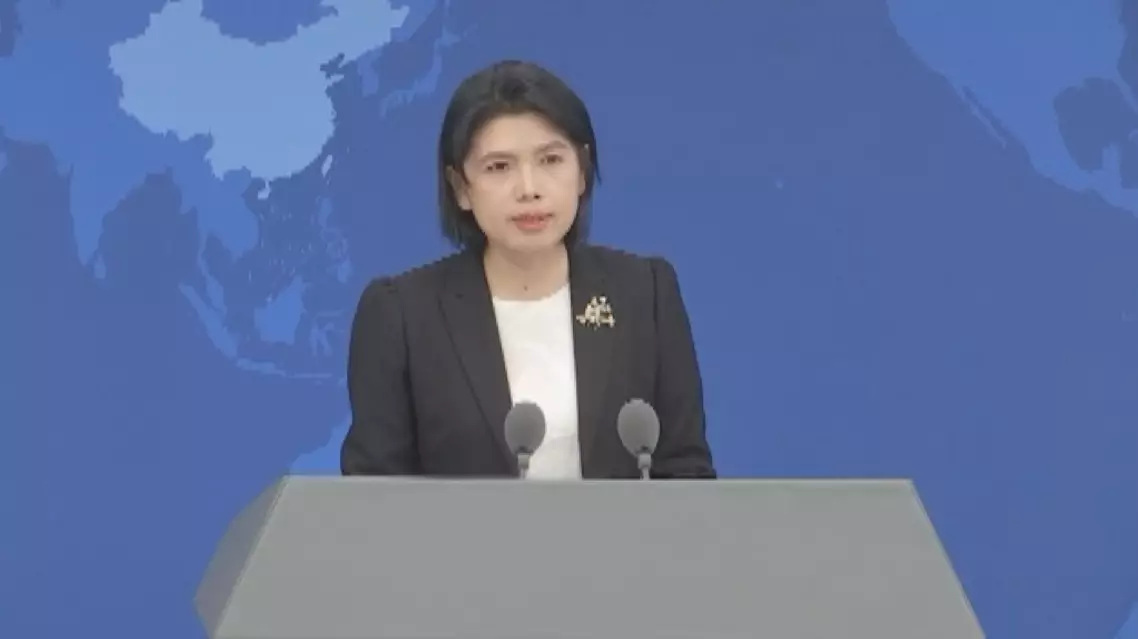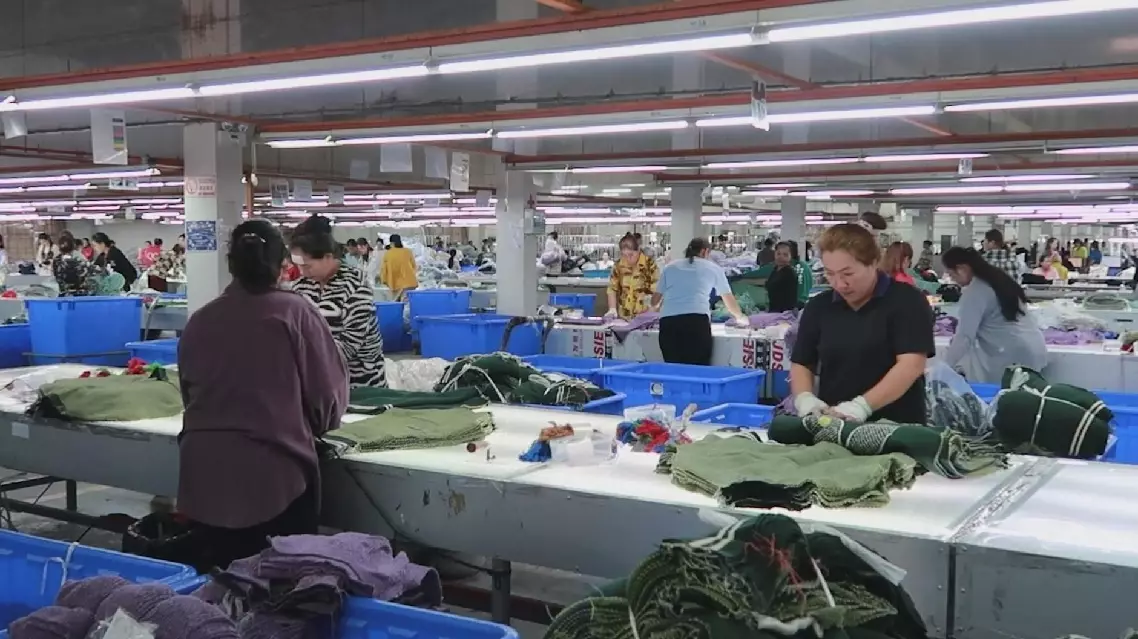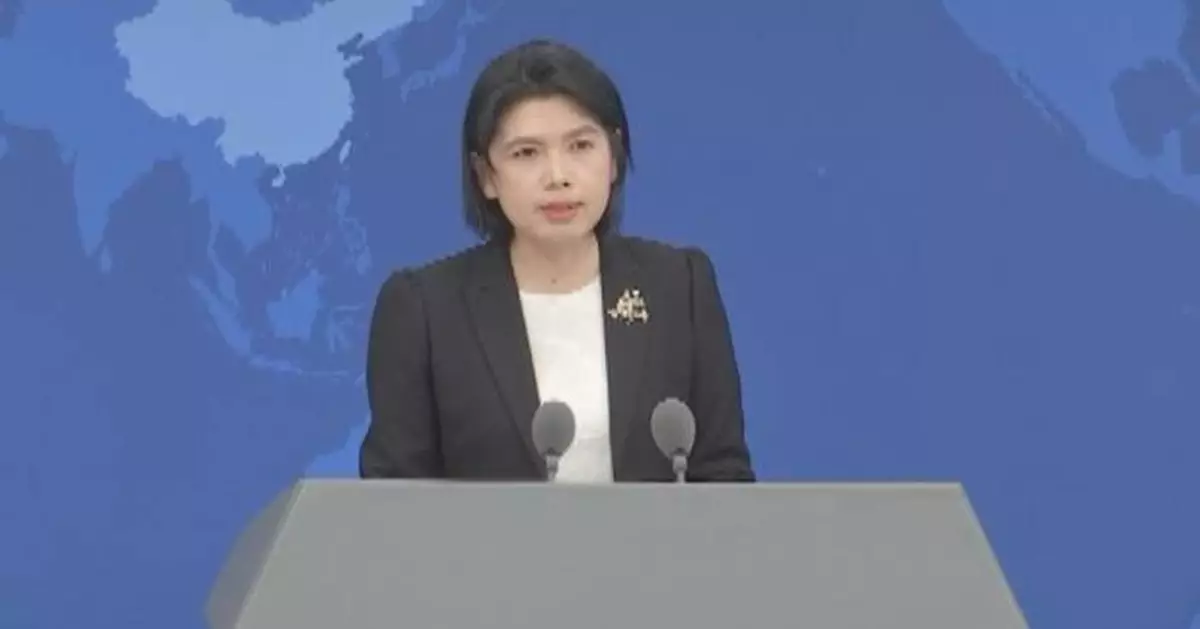A Chinese spokesperson on Wednesday condemned Taiwan's Democratic Progressive Party (DPP) authorities for escalating confrontation and tensions across the Taiwan Strait, and persecuting mainland spouses in Taiwan.
Zhu Fenglian, spokesperson for the Taiwan Affairs Office of the State Council, made the remarks at a press conference in response to the DPP authorities' suppression of mainland spouses in Taiwan.
The DPP authorities recently said that in order to avoid having "dual household registrations" on both sides of the Taiwan Strait, they are requiring 12,000 mainland spouses in Taiwan to submit "proof of citizenship renunciation" of the mainland within three months. Those who fail to submit the required documents on time may have their settlement permits and household registrations revoked.
Zhu criticized the DPP for targeting mainland spouses and urged the public in Taiwan to stand up for their rights.
"From forcing the family separations of mainland spouses in Taiwan under various false pretexts, to coercing mainland spouses to submit the proof, the DPP authorities have made 'green terror', heightened cross-Strait confrontation, and increasingly resorted to all means without regard for human relations. Mainland spouses are family members and relatives of Taiwan compatriots. In the face of the DPP authorities' attempt to seek 'Taiwan independence' and make provocations, including atrocities of spiting and persecuting mainland spouses, and provoking division in Taiwan society, our Taiwan compatriots must stand up in opposition and bravely safeguard their rights and interests," she said.

Mainland blasts DPP authorities for persecuting mainland spouses
U.S. tariffs on Cambodia, which were set at 49 percent, have sparked concerns among the Southeast Asian country's key export industries such as garment manufacturing amid the ensuing economic uncertainties.
On April 2, U.S. President Donald Trump announced the 49 percent "reciprocal tariff" on goods imported from Cambodia, the highest among all countries. Days later, the U.S. reduced the so-called "reciprocal tariff" to 10 percent for 90 days, offering a window period to Cambodia for negotiations with it.
Cambodian businesspeople say the tariffs have the potential to wreak havoc on the country's manufacturing sector, which, according to data from the World Bank, makes up around a fifth of the country's GDP.
"For U.S. manufacturers, definitely, there will be a big impact. If manufacturers are focusing on U.S. products, they are now in the middle. They don't know what they should do at the moment because the tariff now from Cambodia to the U.S. is actually quite high," said Dr. Ben Li, a Hong Kong investor in Cambodia and Chairman of the Cambodia Chinese Commerce Association.
Nevertheless, Li sees the tariff hike as an opportunity to export more Cambodian goods to the European Union, where a majority of Cambodian exports enjoy duty-free status.
"I always say there will be a light (at the end of the tunnel.) Even now, the U.S. tariff is so high, it's going to be so high after 90 days, we don't know. But, there's still a big market to Japan or to the European Union. There's still a big opportunity there," he said.
The Cambodian investor also believes the development of major infrastructure projects will help support Cambodia's economy.
"Especially the new canal and then the new airport, and the railways which connect to China. I believe once the logistics and infrastructure are built up, it can help the whole country's economy. By reducing the transportation costs, it can also mitigate the tariff costs," he said.
Cambodia and the U.S. held their first tariff negotiations on April 16, with more expected to follow. Local experts said the stakes are high for the country's workers.
"If this negotiation fails, there will be a significant impact. It will include the garment and travel goods sector. These sectors consist of about 1,068 factories and 930,000 workers. The income generated from these sectors is about 3 billion dollars per year. So it would significantly impact Cambodia's economy, jobs and incomes," said Chey Tech, a socio-economic research and development consultant from Dynamic Alliance Consulting.
Despite the potential risks, Tech expressed his optimism about a positive outcome, citing Cambodian Prime Minister Hun Manat's letter to Trump on April 4.
"The Prime Minister's letter confirmed that Cambodia would reduce the tariff rate for U.S. goods to 5 percent. Second, Cambodia is the least developed country. Third, Cambodia produces goods that the developed countries won't produce. We asked whether the U.S. would be able to produce these low-cost products. It cannot," said Tech.
In 2024, Cambodia exported goods of 9.9 billion dollars to the U.S., making it the country's largest market, accounting for 37 percent of Cambodia's total exports.

49-percent US tariffs sparks worry among Cambodia's key export industries





















































